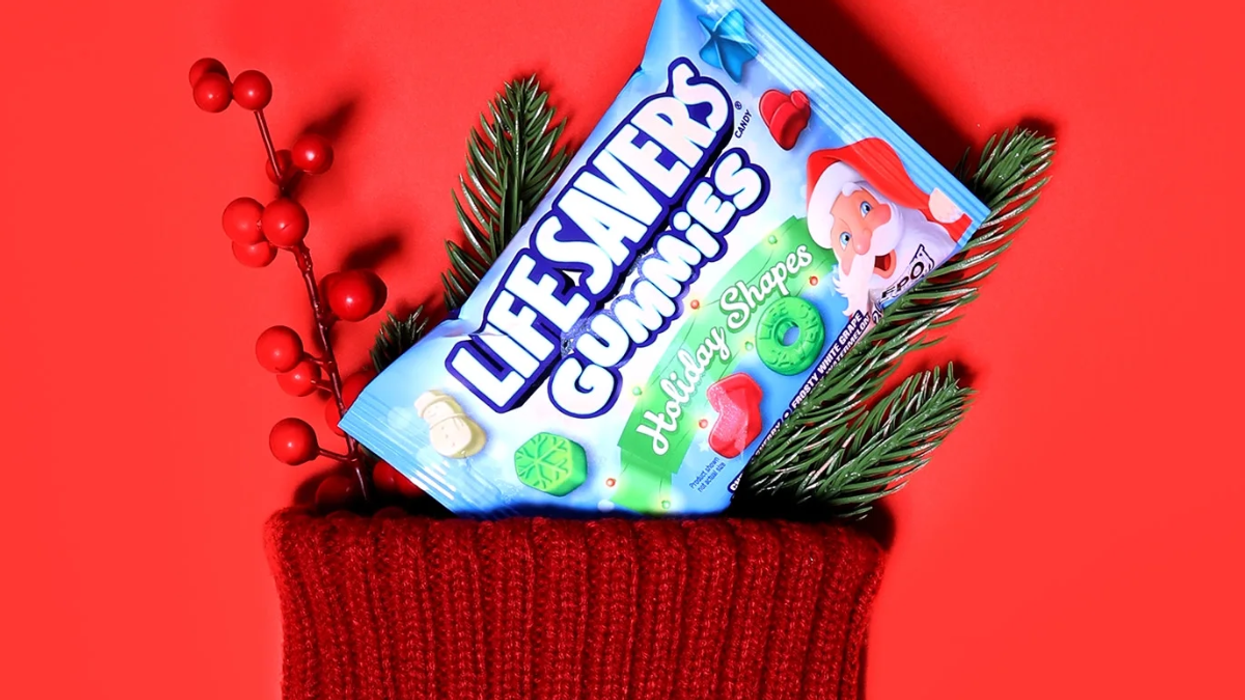An expert sounds off.
How to Break the Bad Habit You Do While Watching Netflix

Ah, snacking: our delicious pastime. Although the benefits of snacking have been widely debated by scientists, the general consensus is that snacking is awesome. Although, it’s not always great for us — no matter how many healthy snack recipes and plant-based power snacks we Pin. But it’s not snacks that are the problem — it’s the mindless eating that can come along with it, according to Dr. Leslie Lutes, Associate Professor of Psychology at the University of British Columbia, Okanogan.
“[Eating in front of the TV] really comes down to attention and habit. When we are not paying attention to what we’re eating, then we’re more likely to eat more than we think we are or more than we intended to,” Dr. Lutes says. Luckily for all of us perpetual snackers, she believes that breaking a snacking habit isn’t about willpower — it’s about skillpower. Here are a few of her helpful tips for curbing your TV cravings.
1. Don’t try to quit cold turkey. As good as your intentions to give up screen snacking might be, the best thing you can do is be real with yourself. Mindless snacking is an embedded habit that’s going to take a while to break. Dr. Lutes suggests setting a realistic goal to start, like quitting snacking for two days a week, and building on that routine once you feel comfortable.
2. Use the QQF method. QQF (or quality, quantity and frequency) is a handy way to make small changes to eradicate a pesky bad habit, like screen eating. If you’re looking to change your TV eating habits, try swapping the M&M’s out for some raspberries (quality), eating only one handful of treats as opposed to a whole bag (quantity) or eating your fave snacks only three days a week as opposed to five (frequency).
3. Eat meals at the table. By eating meals at the table without distractions (AKA turning off that iPhone during dinner time), you run less of a risk of mindlessly snacking throughout the rest of the evening.
4. Brush your teeth after dinner. Although it may seem silly, brushing your teeth after your last meal of the night “actually deters you from snacking,” says Dr. Lutes. Although she confesses that it might not work every night, that minty fresh feeling will help signal that it’s time to stop eating.
5. Have a plan for when you feel the urge to snack. Whether it’s calling a friend or getting out of the house, having a concrete plan for when you’re jonesing for goodies is a great tool to help you cut the cravings.
6. Break the habit of bringing the bag to the couch. It’s time to ditch the idea that if you bring the whole bag of Cheetos to the couch, you’ll totally listen to your stomach when it grumbles that you’re full. You have to set yourself up for success. Instead of bringing the whole bag, portion out a reasonable amount and seal that baby up.
7. Make food about food and emotion about emotion. Listen, we get it: Bad days are the worst. When your boss is being a grouch or your BF is bringing you down, a pint of ice cream or a bag of salty chips seems like just the friend you need. “Eating the bag of chips won’t help you (in the long-run) deal with your stressor at work, your relationship or your life,” says Dr. Lutes. “They often just make people feel better in the moment, only to make them feel bad or guilty after.” Although emotional eating is a difficult habit to break, try asking yourself why you’re eating a particular food and if you actually feel hungry. If the answer is no, then you should probably put it down, no matter how good it looks ATM.
8. Don’t be too hard on yourself. All bad habits are habits for a reason. “If this all fails and before you realize it you are sitting in front of the TV and look down at that empty box of Pringles — don’t beat yourself up,” Dr. Lutes suggests. Instead, “Think about how we got to this place and how we can move on from here.”
Do you have any tips or tricks to stop eating junk in front of the TV? Tweet us your comments by mentioning @BritandCo.
(Photo via Getty)


















